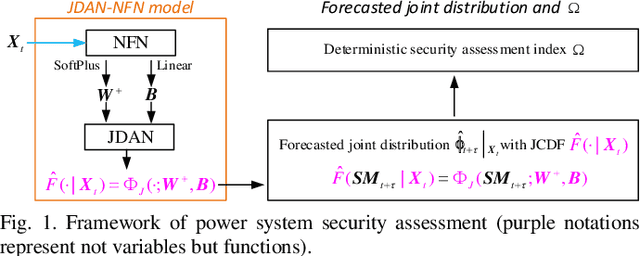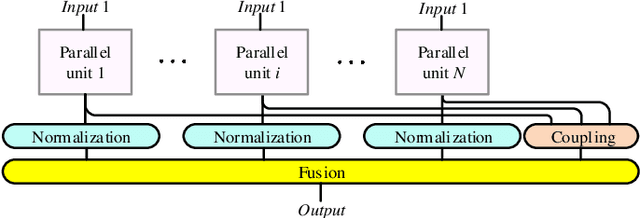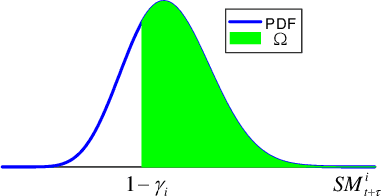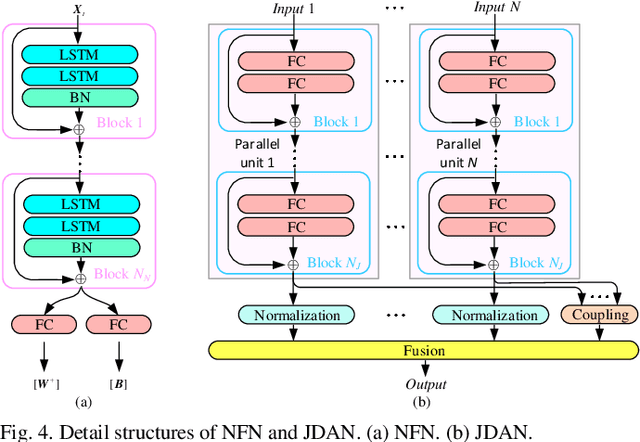Zichao Meng
Nonparametric End-to-End Probabilistic Forecasting of Distributed Generation Outputs Considering Missing Data Imputation
Mar 31, 2024Abstract:In this paper, we introduce a nonparametric end-to-end method for probabilistic forecasting of distributed renewable generation outputs while including missing data imputation. Firstly, we employ a nonparametric probabilistic forecast model utilizing the long short-term memory (LSTM) network to model the probability distributions of distributed renewable generations' outputs. Secondly, we design an end-to-end training process that includes missing data imputation through iterative imputation and iterative loss-based training procedures. This two-step modeling approach effectively combines the strengths of the nonparametric method with the end-to-end approach. Consequently, our approach demonstrates exceptional capabilities in probabilistic forecasting for the outputs of distributed renewable generations while effectively handling missing values. Simulation results confirm the superior performance of our approach compared to existing alternatives.
An Adaptive Approach for Probabilistic Wind Power Forecasting Based on Meta-Learning
Aug 15, 2023Abstract:This paper studies an adaptive approach for probabilistic wind power forecasting (WPF) including offline and online learning procedures. In the offline learning stage, a base forecast model is trained via inner and outer loop updates of meta-learning, which endows the base forecast model with excellent adaptability to different forecast tasks, i.e., probabilistic WPF with different lead times or locations. In the online learning stage, the base forecast model is applied to online forecasting combined with incremental learning techniques. On this basis, the online forecast takes full advantage of recent information and the adaptability of the base forecast model. Two applications are developed based on our proposed approach concerning forecasting with different lead times (temporal adaptation) and forecasting for newly established wind farms (spatial adaptation), respectively. Numerical tests were conducted on real-world wind power data sets. Simulation results validate the advantages in adaptivity of the proposed methods compared with existing alternatives.
A Multivariate Density Forecast Approach for Online Power System Security Assessment
May 07, 2021



Abstract:A multivariate density forecast model based on deep learning is designed in this paper to forecast the joint cumulative distribution functions (JCDFs) of multiple security margins in power systems. Differing from existing multivariate density forecast models, the proposed method requires no a priori hypotheses on the distribution of forecasting targets. In addition, based on the universal approximation capability of neural networks, the value domain of the proposed approach has been proven to include all continuous JCDFs. The forecasted JCDF is further employed to calculate the deterministic security assessment index evaluating the security level of future power system operations. Numerical tests verify the superiority of the proposed method over current multivariate density forecast models. The deterministic security assessment index is demonstrated to be more informative for operators than security margins as well.
 Add to Chrome
Add to Chrome Add to Firefox
Add to Firefox Add to Edge
Add to Edge